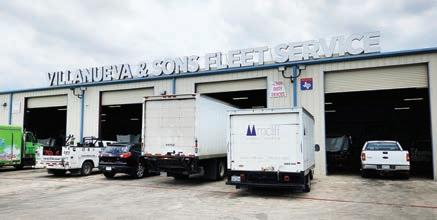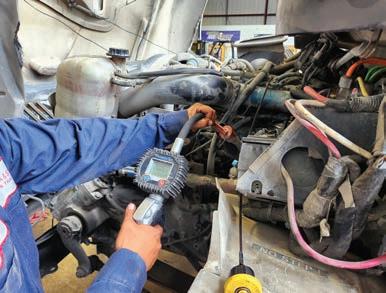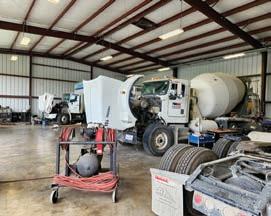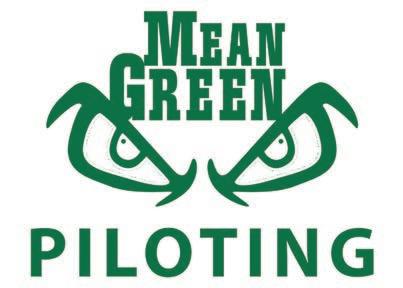On the Cover: Pages 18 & 19
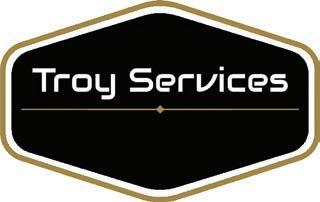




We are a Texan-Owned magazine company that brings a fresh new advertising opportunity to the trucking, warehousing, and industrial sectors. Whether you are looking to expand your audience across Texas or you are a fellow trucker looking for a service along the way, our Team is standing by ready to assist you.


The Mexican government is claiming long delays at the border due to truck inspections are costing both Mexico and the United State millions in losses.
In a statement, Mexico’s Ministry of Economy expresses its concerns regarding economic losses due to recent truck inspections near the Matamoros-Brownsville, Texas, border. Delays are running anywhere from eight to 27 hours, according to the Mexican government.

In effect since earlier this month, the Texas Department of Public Safety has installed additional truck inspections at the Veterans International Bridge in Brownsville and Free Trade International Bridge Los Indios. The measure was said to have the objective of interrupting migrant smuggling at the border. However, the Mexican government said that is “an attribution that does not correspond to subnational governments.”
The letter claims that such actions “are motivated by an anti-Mexican vision that is far from the social, cultural and economic integration between Mexico and Texas.” According to the letter, the Mexican-Texas relationship brings in an average of $231 billion each year.
“Contrary to these mutual benefits, the imposition of these inspections is generating millions in losses for both Mexican and American companies,” Mexico’s Ministry of Economy states. “These inspections are causing delays of between eight and 27 hours in the entry of national cargo transports to Texas, which mainly affects perishable products. Ultimately, American consumers are paying the costs of these policies, so it’s in everyone’s interest to restore normalcy at the border.”
Texas’ Department of Public Safety can only inspect mechanical issues at the bor-
Credit: Stock Imageder. The U.S. Customs and Border Protection is responsible for cargo truck inspections.

Initially, Texas inspected 100% of northbound trucks at the borders. Despite that number being reduced, significant delays are still causing supply chain issues at the southern border.
If the truck inspections do not come to a halt, the Mexican government will take the matter to the trade facilitation committee of the United States-Mexico-Canada Agreement trade pact.
On May 3, U.S. Rep. Henry Cuellar, D-Texas, issued a statement on the Department of Public Safety’s inspections.
“I support DPS and law enforcement,” Cuellar said in a Facebook post. “However, the DPS men and women in service to our great state should not be confined to mechanical inspections. This anti-business showmanship will cost the U.S. economy billions of dollars in economic losses, just
as similar inspections did last year.”
Last year, Texas Gov. Greg Abbott issued a similar order at the border, causing a reaction from the White House. “Gov. Abbott’s unnecessary and redundant inspections of trucks transiting ports of entry between Texas and Mexico are causing significant disruptions to the food and automobile supply chains, delaying manufacturing, impacting jobs, and raising prices for families in Texas and across the country,” press secretary Jen Psaki said in a statement. “Local businesses and trade associations are calling on Gov.Abbott to reverse this decision because trucks are facing lengthy delays exceeding five hours at some border crossings and commercial traffic has dropped by as much as 60%.”
According to a report published by Waco, Texas-based economic research and analysis firm Perryman Group, last year’s additional truck inspections at the Texas border cost the state more than $470 million each day, totaling a state GDP loss of more than $4 billion.
Source: https://landline.media/mexico-urges-texas-to-stop-border-truck-inspections-delays-up-to-27-hours/














The US may soon start unloading oil from an Iranian tanker now anchored off the coast of Texas that was seized by the Department of Justice in April, the Financial Times reported, without saying where it got the information.
The vessel, named Suez Rajan, arrived offshore of Galveston on May 29, the newspaper said, citing satellite images and transponder location data. The US seized the tanker in April while it was en route to China, prompting Iran to take a US vessel called the Advantage Sweet, which was carrying Kuwaiti oil for Chevron, according to the FT.

Iran’s oil exports have been a target of sanctions imposed on the country over its
nuclear program, with the US and its allies trying to prevent Iran from using its energy technology to develop nuclear weapons.
The Suez Rajan’s arrival off the coast likely signals that the US government has reached an agreement with the operators and owners of the tanker on criminal penalties, the FT cited an unidentified ex-official in President Joe Biden’s administration as saying. The ship is carrying an estimated 800,000 barrels of crude worth $56 million, the paper said.
The US Department of Justice declined to comment, as did the Treasury’s Office of Foreign Assets Control, the newspaper said.
Source: https://gcaptain.com/u-s-may-unload-oil-from-seized-iranian-vessel-off-texas/
ALONZO MARTINEZ FORWARDING INC.
14203 Business AVE. Laredo, TX 78045 956-516-7952 | Cell 956-744-1264

OFRECE LOS SIGUIENTES SERVICIOS:
• Servicios de Distribución
• Transporte

• Agencia Aduanal
• Exportación
• Importación
• Almacenaje
• Bodega
• Envíos
Alonzo Martinez se especializa en servicios de Despachos Aduanales Logística, Carga y Envíos. Nuestra meta es proporcionarle el mejor servicio en el ramo. Con la experiencia en las áreas de Importación Exportación, Transporte y Servicios de Distribución, nuestra compañía brinda los mejores servicios.
















itself apart in the industry; he was right. A decade later, Troy Services now operates a fleet of over 60 trucks and trailers and employs over 70 company drivers, owner operators, and employees. As a family man himself, Cesar knows how important it is to operate the company in a family-focused manner!


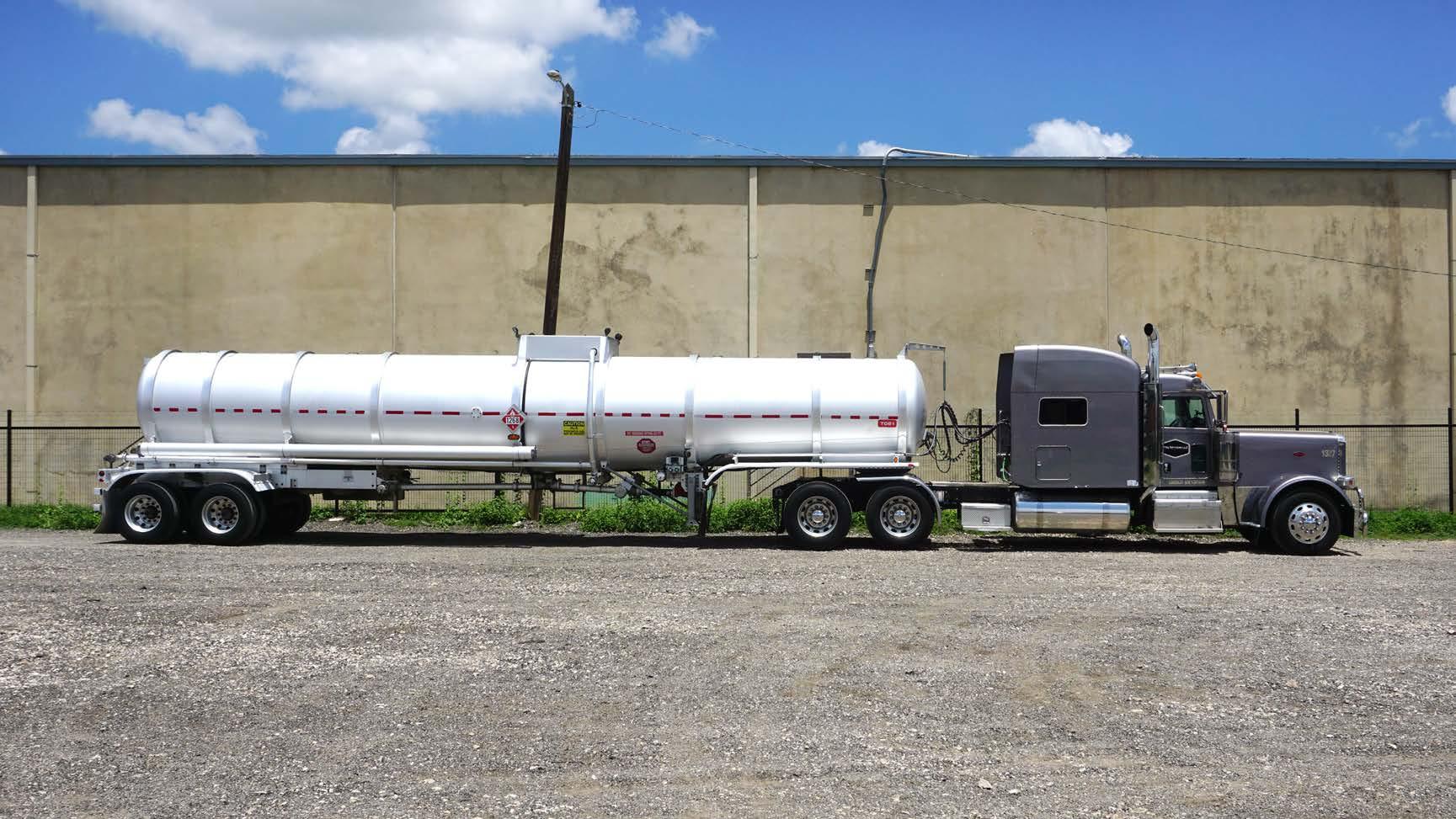
In 2013, after serving 8 years and completing two deployments for our United States Marine Corps, Cesar De La Cerda Jr. started Troy Services with a single truck and trailer as an Owner Operator for a third-party transporter. As a third-generation trucker, Cesar believed that starting a trucking company where transparency, honesty, and integrity would be the cornerstone of how his company would set
We know that our company’s greatness comes from our contractors. In the same way that you support us to be our best, we support you to be your best. We have high standards for our contractors, but we have higher standards for ourselves! We want to be a company that you are proud to be a part of.
Drivers who choose to work with us, stay with us! We take pride in maintaining a low driver turnover rate because we value our employees and only choose the best of the best.
We Are ALWAYS searching for the BEST Company Drivers and Owner Operators!






Eptura, the global worktech leader, today enhanced its Fleet Maintenance software with Tire Tracking capabilities to help fleet managers better understand the usage and history of fleet tires while ensuring the safety of technicians, drivers, and equipment out on the road.
Tire Tracking capabilities in Eptura Asset enable customers to easily take tires from inventory and drag them onto an axle schema to reflect tire rotations and replacements.
Tire management remains one of the top considerations for fleet managers, both in terms of safety and costs. According to the U.S. National Transportation Safety Board, an average of 33,000 accidents occur annually because of tires. Monitoring tire usage, age, and repair history enables fleet managers to keep fleets operating safely and protect the drivers, equipment, and goods for which they are responsible.
As the third-largest overall expense in fleet management, tires are one of the most significant financial investments, requiring fleet managers to stay ahead of maintenance and under budget. Tires are worn differently based on location, axle schema, inflation, and many other factors. Even a small adjustment to tread depth can have a costly impact on fuel efficiency and reduce the lifecycle of a tire. Managing tire inventory and maintenance, especially across fleets consisting of different vehicles, can be a major challenge for fleet managers. Tire Tracking offers fleet managers the ability to maximize tire life and minimize future costs by controlling inventory and optimizing maintenance.
Key features available in Tire Tracking include:
• Mileage tracking records the distance travelled by each tire to plan repairs and replacement.
• Tire inventory creates a digital parts record so fleet managers can track the volume of parts and, using bar codes, easily assign new data to tire record when it is mounted to a wheel, repaired, or disposed.
• Cost tracking monitors expenses associated with tires, including the cost of new tires, repairs and disposals, to understand which tires perform best for your fleet.
• Axle schema configurator enables fleet managers to integrate detailed axle information by vehicle with tire data to associate the location of the tire with wear and tear.
• Preventive maintenance schedules create work orders like tire rotations or replacements based on tire pressure, time, or distance-based conditions to reduce the risk of accidents and costly repairs.
Tire Tracking is also designed to help fleet managers ensure compliance with regulations to avoid fines and costly accidents. Accurately monitoring the lifecycle of a tire allows fleets to stay compliant with government fleet requirements and industry best practices. With increased visibility into the status of tires across the fleet, Tire Tracking can help fleet managers demonstrate compliance internally and externally at scale.
“The primary objectives of every fleet manager are to maintain operator safety and ensure vehicle uptime,” said Dan DeRosa, Chief Product Officer of Eptura. “By launching Tire Tracking, Eptura is unlocking new ways for fleet managers to improve driver safety and keep their vehicles on the road to meet customer needs. The Tire Tracking capabilities are unique in that they display the value of preventive maintenance in protecting both operators and their equipment.”

Available now in Eptura Asset, additional capabilities in Fleet Maintenance include mapping, service codes, downtime, component tracking, inventory, and telematics. Together with Tire Tracking, Eptura’s Fleet Maintenance software provides all the tools that modern fleet managers need to manage costs without sacrificing safety.

Source: https://finance.yahoo.com/news/eptura-enhances-fleet-maintenance-software-120000463.html









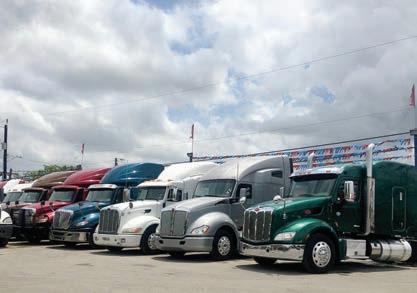


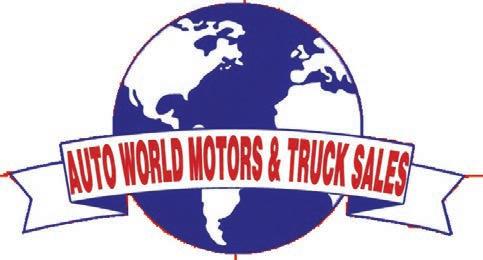







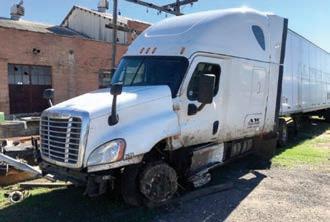

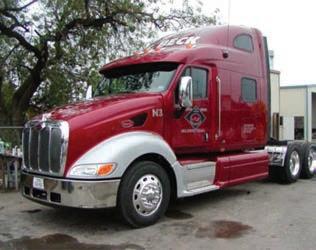

We understand that you make money when your truck is on the road. That’s why we offer great service and fast turnarounds with prices that dealerships can’t compete with. B&V saves you time and money to keep you moving.
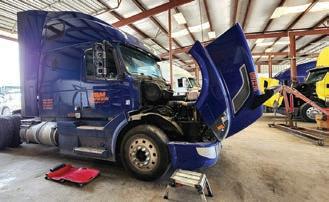

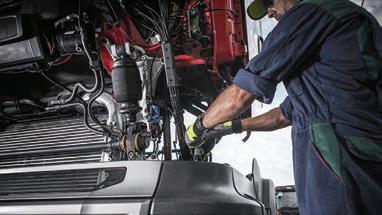
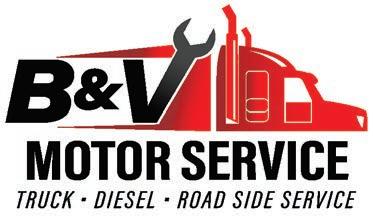

 By: Jackson Parker
By: Jackson Parker
Fleet maintenance is a critical aspect of managing a fleet of vehicles, regardless of its size or industry. Neglecting proper maintenance can lead to a host of issues, including increased costs, reduced efficiency, and compromised driver safety. Here are the reasons why fleet maintenance is of the utmost importance and how it can benefit your organization.
Regular maintenance helps prevent minor issues from escalating into major, more expensive, problems. By adhering to scheduled maintenance routines, fleet managers can identify and address potential issues before they become more serious. This proactive approach minimizes the risk of unexpected breakdowns, reduces the need for costly repairs, and extends the life of fleet vehicles. Investing in preventive maintenance tools will lead to significant cost savings in the long run.
Well-maintained vehicles will perform optimally, ensuring smooth operations and better efficiency. Regular maintenance includes tasks such as oil changes, tire rotations, and brake inspections, which directly impact the performance of vehicles. Properly lubricated engines, balanced tire pressure, and well-functioning brakes con-
tribute to improved fuel efficiency, reduced emissions, and enhanced vehicle performance. Well-maintained vehicles also provide a more comfortable and safe driving experience for drivers, leading to increased productivity and job satisfaction.
Ensuring the safety of drivers, passengers, and other motorists is of the utmost importance in fleet management. Regular maintenance plays a crucial role in maintaining vehicle safety standards. Well-maintained brakes, tires, lights, and other critical components reduce the risk of accidents and breakdowns. Fleet managers should also prioritize compliance with safety regulations and conduct thorough regular inspections to identify any potential safety hazards. By prioritizing fleet maintenance, businesses demonstrate their commitment to safety and protect their drivers and property.
The transportation industry is subject to numerous regulations and standards. Compliance with these regulations is critical to avoiding penalties, legal issues, and damage to an organization’s reputation. Fleet maintenance ensures that vehicles meet all necessary regulatory requirements, such as emissions standards, safety inspections, and licensing. Regular maintenance records and inspection reports serve as essential documentation to demonstrate a fleet’s compliance with regulatory bodies, further safeguarding the reputation and credibility of the fleet and the company.
Maintaining a reliable and well-maintained fleet is crucial for meeting customer expectations and maintaining a competitive edge. Timely deliveries, reduced downtime, and minimal service interruptions are vital in today’s fast-paced business environment. A well-maintained fleet increases customer satisfaction by ensuring on-time deliveries, reducing the risk of delays, and minimizing the possibility of service disruptions due to unexpected breakdowns. Satisfied customers are more likely to become repeat customers, driving business growth and profitability.
Vehicles are valuable assets for any fleetbased business. Regular maintenance helps preserve the value of these assets over the long term. Proper maintenance routines, including cleaning, lubrication, and rust prevention, help prevent premature wear and tear. Well-maintained vehicles also retain higher resale values, providing a better return on investment when it’s time to replace or upgrade vehicles. By taking care of their assets through effective maintenance, fleet managers ensure the longevity and financial stability of their businesses.
Fleet maintenance is not a luxury; it is a necessity for any organization that depends on vehicles in order to carry out its work. From cost reduction and improved performance to enhanced safety, regulatory compliance, customer satisfaction, and long-term asset preservation, the importance of fleet maintenance cannot be overstated. By prioritizing maintenance routines and investing in preventive measures, businesses can reap the benefits of a well-functioning fleet, reduced costs, and increased operational efficiency. Ultimately, fleet maintenance is the foundation of a successful and sustainable fleet management strategy.
Source: https://fieldlogix.com/news/the-vital-importance-of-fleet-maintenance/

